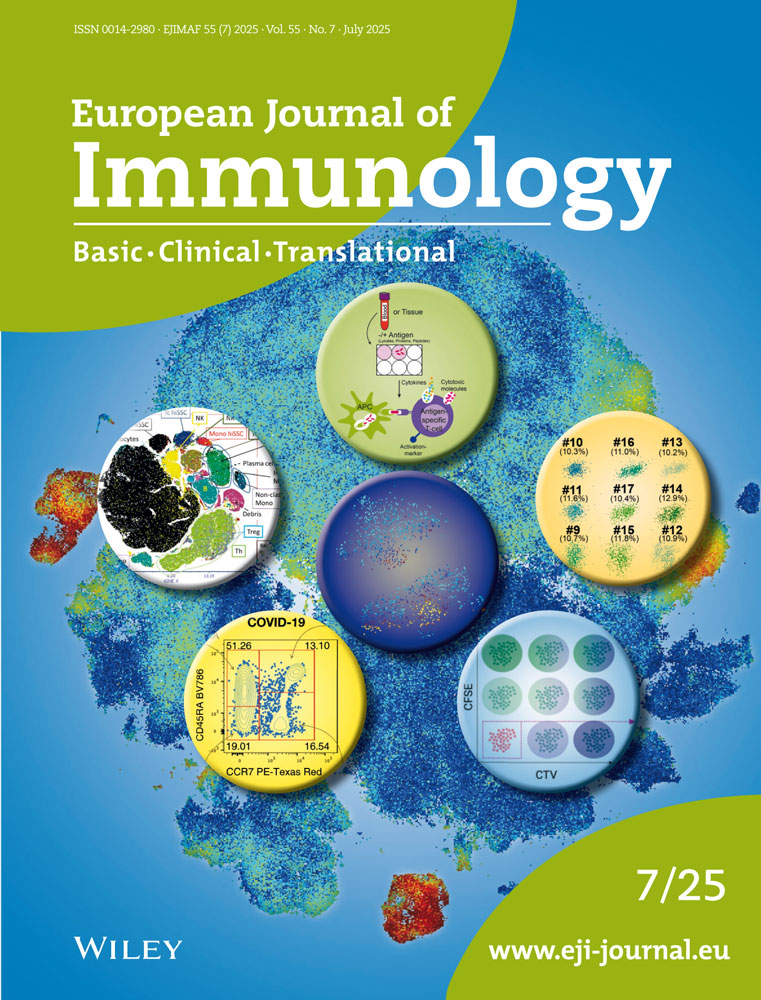Protective major histocompatibility complex genes and the role of interleukin-4 in collagen-induced arthritis
Abstract
To investigate the role of interleukin (IL)-4 during the triggering of collagen-induced arthritis, we examined the effects of the I-Ab and I-E protective/suppressive genes and passively administered anti-IL-4 monoclonal antibody. In contrast to the action of I-E expression on its own, which has mainly a suppressive effect post-triggering, the combination of I-Ab and I-E had a marked protective effect. Assuming, on the basis of previous experience with the I-Ab allele, that it might act through suppressing early IL-4 production, we treated mice with the 11B11 IL-4-neutralizing antibody around the time of initial immunization with collagen. Treatment over a period extending to 6 days post-immunization exacerbated the arthritis, but when curtailed to 2 days post-immunization (and tested in pristane-primed animals), the disease was reduced. We conclude that IL-4 plays an essential role in triggering the disease.




